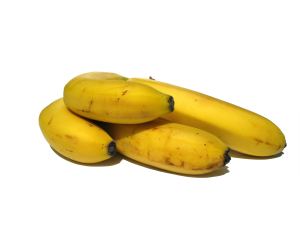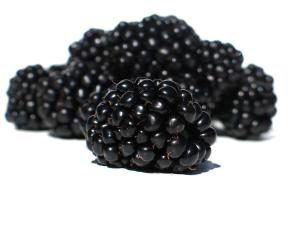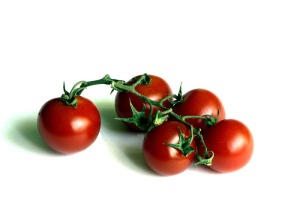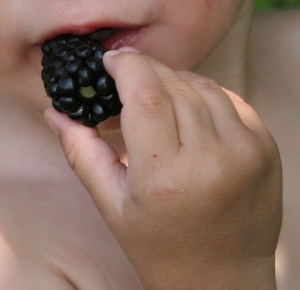How to Start an Organic Garden
In order to get the best results with your new organic garden, you'll want to make sure the soil is properly conditioned. You have to eat, and so do plants, so make sure your veggies get lots of fresh nutrients. Good healthy soil helps build up strong, productive plants. Chemical soil treatments can not only seep into your food, but they can also harm the beneficial bacteria, worms and other microbes in the soil.
The best way to gauge the quality of your soil is to get it tested. You can get a home testing kit, or better, send a sample to your local agricultural extension office. For a modest fee you'll get a complete breakdown of pH and nutrient levels, as well as treatment recommendations (be sure to tell them you're going organic). That way you can tailor your gardening program. Typically, it's best to test in the fall, and apply any organic nutrients before winter.
Even if you don't have time for testing, you'll want to make sure your soil has plenty of humus -- the organic matter, not the similarly named Mediterranean spread. According to 1000 Gardening Questions & Answers, you'll want to mix in compost, leaf and grass clippings and manure. Manure should be composted, unless you aren't going to harvest or plant anything for two months after application. Preferably, get your manure from local livestock that have been organically and humanely raised -- and never use manure from animals that eat meat.
Read more: http://www.thedailygreen.com/green-homes/latest/organic-gardening-tips-460309#ixzz0SQQYMyQU
Great Finger Foods
Around 9 to 10 months of age, a baby has developed enough motors skills to allow her to use the fingers to pick up food. This is a good time to start introducing finger foods. Kids usually have fun and enjoy developing their independence at this age, and this will work as a transition to eating with utensils at a later stage.
Fruits and vegetables make great finger foods. Variety will keep it fun and challenging for them!
As a rule of thumb, pieces should be small, soft and well cooked. It should melt in the mouth, at this stage they are not ready to eat chewy pieces for too long.
Good examples of fruits (raw or cooked): banana, apple, strawberry, mango, peach, plum and avocado
Vegetables (well cooked only): broccoli, carrots, zucchini, peas, green beans, asparagus and potatoes
Meats (well cooked only): little pieces of boneless chicken (breast or thigh), turkey breast
Processed carbs: whole grain cookies and cakes
For kids ages 4 and older, homemade granola bars are a great option for a nutritious snack. Try the recipe below:
- Fruit and Oat Granola Bar
-1 organic egg
-1 egg white
-3/4 cup light brown sugar
-1 tblspoon canola oil
-1 tblspoon cinnamon
-1/4 tblspoon salt
-1 tblspoon good quality vanilla extract
-1 1/2 cups toasted oats
-2/3 cup dried cranberries, chopped
-1/4 cup pecans, chopped
-1 tblspoon all-purpose flour
Preheat over to 350 degrees F. Spread oats on a baking sheet and bake, stirring occasionally, for 15 to 18 minutes, until lightly browned.
Reduce oven temperature to 325 degrees F. Line and 8x11" pan with foil. Lightly oil or coat with nonstick spray.
Spread in prepared pan and bake for 30 to 35 minutes. Cool, cut into bars with a lightly oiled knife.
Preparation time: about 30 minutes
Nutritional value: (based on individual servings)
Calories: 130
Total Fat: 2 g
Cholesterol: 14 mg
Sodium: 50 mg
Carbohydrates: 24 g
Protein: 2 g
Source: Daily Green
Fruit Recipes (Stages 1 and 2)

Stage 1
Some moms believe that fruits should be introduced a couple of weeks after the vegetables. The reason is purely taste! Fruits are sweeter and babies may not like vegetables if introduced to fruits first.
Good options to introduce fruits are apples, pears, bananas, avocado, papaya, plums and prunes.
- Homemade Apple Sauce (add pears for a great taste and variety!)
- 6 Red Delicious apples
- 2 cups of water
Wash thoroughly the apples. Peel and slice them, getting rid of the core. Boil in water for about 15 minutes. Remove the pan from the stove. Don't throw the water away, it contains several minerals and vitamins. Blend the content with a hand mixer, or a blender until it turns into a smooth paste.
Add iron fortified cereal (whole rice or oatmeal) if desired.
Preparation time: about 25 minutes.
Nutritional value: high in vitamins A and C, potassium and fiber.
- Mashed Bananas with Cereal and Formula or Yogurt
- 1 banana
- 1 teaspoon of rice or oatmeal cereal
- 1-2 teaspoons of formula or yogurt (only if your baby has already been introduced to yogurt!)
Peel the banana and mash with a fork. Add the formula/yogurt and stir. Add enough cereal until desired consistency.
Preparation time: about 5 minutes.
Nutritional value: high in potassium, magnesium, calcium and folate (vary by chosen ingredients).

Stage 2
- Berry Banana Shake
- 1 banana
- 5 oz. organic whole milk or formula
- 6-8 pitted cherries, and/or 2 tablespoons or blueberries (you can use frozen berries or cherries)
Peel the banana and wash the cherries and/or berries. Mix them all in a tall container. Add the milk or formula. Blend the ingredients using a hand mixer, or a blender. Pour the mix into a sippy cup. You may need to use a strainer otherwise the small pieces may clog the spouts/straws. Babies absolutely love this shake!!
Preparation time: about 5 minutes.
Nutritional value: high in antioxidants, potassium, calcium and protein (vary by chosen ingredients).
- Finger Breaded Banana (you can use other fruits too!)
- 1 banana
- 1 tablespoon of iron fortified whole rice or oatmeal cereal
Peel the banana and cut it in cubes small enough to be picked up by baby's little fingers. Spread the cereal on a small plate and toss the banana cubes on it, covering each cube entirely. This will allow the baby/toddler to easily pick up the cubes without sticking to his/her fingers.
Preparation time: about 5 minutes.
Nutritional value: high in potassium, magnesium and iron (vary by chosen ingredients).
Veggies and Legumes recipes (Stage 2)

- Mashed Broccoli
- 1 lb. organic broccoli
- 1 1/2 - 2 cups of water
Wash thoroughly the broccoli florets with water. Cut the florets and stems in pieces and boil in water.
After about 20 minutes poke them with a fork. When the stems are very soft and tender, remove the pan from the stove. Don't throw the water away, it contains several minerals and vitamins. Mash the content with a hand mixer, or a blender until it turns into a smooth paste.
Preparation time: about 30 minutes.
Nutritional value: high in vitamin C, antioxidants, and fiber.
- Mashed Azhuki, or Black Beans (recipes also valid for Split Peas, Chick Peas and Lentils)
- 1 lb. dry organic Azhuki or Black Beans
- 4 cups of water
Wash thoroughly the beans with water. Soak the beans in water overnight to drastically reduce the cooking time.
The day after, cook the beans with water for 40-45 minutes. Add more water as it dries up. When the beans are very soft, remove the pan from the stove. Mash the content with a hand mixer, or a blender until it turns into a smooth paste.
Preparation time: about 30 minutes.
Nutritional value: high in Iron, protein, folate, potassium and fiber.
- Chicken or Turkey Breast
- 1 lb. organic chicken or turkey breast
- 1 1/2 - 2 cups of water
Wash thoroughly the breasts with water. Cut them in pieces and boil in water.
After about 20 minutes check to make sure they are fully cooked. Remove the pan from the stove. Don't throw the water away, it is a delicious chicken stock! Puree the breasts with the stock using a hand mixer, or a blender until it turns into a smooth paste.
Preparation time: about 30 minutes.
Nutritional value: high in protein and fiber
- Salmon or Trout
- 1 lb. Salmon or trout filets
- 1 1/2 - 2 cups of water
Wash thoroughly the filets with water. Make sure there are no bones. Boil the filets in water.
After about 15 minutes check to make sure they are fully cooked. Remove the pan from the stove. Don't throw the water away, it is a delicious fish stock! Puree the filets with the stock using a hand mixer, or a blender until it turns into a smooth paste.
Preparation time: about 20 minutes.
Nutritional value: high in protein and omega-3
- Chicken, Asparagus and Zuchini with Herbs
- 1 lb. organic chicken breast
- 1/2 lb. organic asparagus
- 1/2 lb. organic zuchini (green and yellow)
- Oregano and parsley
- 2 cups of water
Wash thoroughly the chicken, the asparagus and the zuchini. Cut the chicken breasts, the zuchini and the asparagus in smaller pieces, and boil them all together in water, along with the herbs.
After about 20 minutes poke them with a fork. When the stems are very soft and tender, and the breasts are fully cooked, remove the pan from the stove. Don't throw the water away, it contains several minerals and vitamins. Blend the content with a hand mixer, or a blender until it turns into a smooth paste.
Preparation time: about 30 minutes.
Nutritional value: high in vitamin C, antioxidants, fiber and proteins.
- Chicken, Sweet Potato and Cauli-Flower with Onion
- 1 lb. organic chicken breast
- 1/2 lb. organic sweet potatos
- 1/2 lb. organic cauli-flower
- 1 tablespoon of chopped onion
- 2 cups of water
Wash thoroughly the chicken and the cauli-flower with water, and the sweet potato with a brush. Cut the chicken breasts, the sweet potato with the skin, and the cauli-flower in chunks of an inch approximately. Boil them all together in water, along with the onion.
After about 20 minutes poke the pieces with a fork. When the sweet potato is very soft and tender, and the breasts are fully cooked, remove the pan from the stove. Don't throw the water away, it contains several minerals and vitamins. Peel the sweet potato with your fingers. Don't use the skin. Blend the content with a hand mixer, or a blender until it turns into a smooth paste.
Preparation time: about 30 minutes.
Nutritional value: high in vitamin C, betacarotene, antioxidants, fiber and proteins.
- Broccoli with Cheddar Cheese (yummy!)
- 1 lb. organic broccoli
- 3 to 4 oz of cheddar cheese
- 1 cup of water
Wash thoroughly the broccoli with running water. Cut the broccoli into chunks, both florets and stems. Boil the pieces in water.
After about 10 minutes poke the pieces with a fork. When the stems are soft and tender, remove the pan from the stove. Don't throw the water away, it contains several minerals and vitamins. Shred the cheese, or cut it into small cubes, and add to the boiled broccoli. Wait until it melts with the heat of the cooked broccoli. Blend the content with a hand mixer, or a blender until it turns into a smooth paste.
Preparation time: about 15 minutes.
Nutritional value: high in vitamin C, antioxidants, fiber, calcium and proteins.
- Napa Cabbage with Onion and Eggs
- 1 1/2 lb. organic napa cabbage
- 1/2 small organic onion
- 2 large eggs
- 1 cup of water
Wash thoroughly the napa cabbage with running water. Chop the napa cabbage into 1/4 inch slices, and dice the onion. Boil both ingredients in water.
After about 10 minutes stir thoroughly. When the cabbage is soft and tender, throw both eggs (yolk and whites). Stir it again, breaking the eggs, mixing all ingredients. Remove the pan from the stove. Don't throw the water away, it contains several minerals and vitamins. Blend the content with a hand mixer, or a blender until it turns into a smooth paste.
Preparation time: about 20 minutes.
Nutritional value: high in vitamin A, C, folate, iron, protein and calcium.
- Organic Brown Rice and Beans (Great source of Protein!)
- 1 lb. organic beans (brown or black)
- 1 cup of dry brown rice
- 1/4 gallon of water
Wash thoroughly the beans. Soak it in water overnight to reduce time on the stove.
Boil the beans with the water in a large pan for about an hour, until the beans are soft. Add the brown rice and let it cook for another 15 to 20 minutes, or until the rice is cooked. Stir from time to time to make sure the beans don't burn at the bottom of the pan. Remove the pan from the stove and let it cool off.
Blend the content with a hand mixer, or a blender until it turns into a smooth paste.
Preparation time: about 1 to 2 hours, depending on how long beans were pre-soaked.
Nutritional value: high in iron, calcium, proteins, fiber and carbohydrate.
Veggies and Legumes Recipes (Stage 1)
 Stage 1 is appropriate for babies 6-8 months, during the initiation to solid foods.
Stage 1 is appropriate for babies 6-8 months, during the initiation to solid foods. All recipes suggest the use of organic ingredients. If you can, opt for organic food, especially when your little one is growing so quickly!
For a list of non-organic vegetables and fruits with the highest and lowest load of pesticides available in the market, please click here.- Sweet Potato (very nutritious and babies love it!!)
- 1 lb. organic sweet potato
- 3 cups of water
Wash thoroughly the sweet potatoes with a brush. Don't peel them. Cut them in pieces and boil in water.
After about 20-25 minutes poke them with a fork. When the pieces are very soft and tender, remove the pan from the stove and wait until it cools off. Don't throw the water away, it contains several minerals and vitamins. When the pieces are cold enough, peel them, get rid of the skin. Mash or blend the peeled pieces in the water you used to boil them. Using a hand mixer, or a blender will make it very smooth for the baby.
Preparation time: about 30 minutes.
Nutritional value: high in beta carotene (it is orange!), vitamin A, and potassium. Also contains calcium, folate and vitamin E.
- Cauliflower
- 1 lb. organic cauliflower
- 1 1/2 - 2 cups of water
Wash thoroughly the cauliflower with water. Cut the florets and stems in pieces and boil in water.
After about 15 minutes poke them with a fork. When the stems are very soft and tender, remove the pan from the stove. Don't throw the water away, it contains several minerals and vitamins. Blend the content with a hand mixer, or a blender until it turns into a smooth paste.
Preparation time: about 25 minutes.
Nutritional value: high in vitamin C, A and Calcium.
- Carrots
- 1 lb. organic carrots
- 2 cups of water
Peel the carrots and wash them thoroughly with water and a brush. Cut the carrots in chunks and boil in water. You can also use a steamer basket.
After about 20 minutes poke them with a fork. When the carrots are soft, remove the pan from the stove. Get rid of the water, it contains nitrates* that are not suitable for babies. Blend the carrots with about 1 cup of mineral water using a hand mixer, or a blender until it turns into a smooth paste.
Preparation time: about 25 minutes.
Nutritional value: high in beta carotene, vitamins A, C and Calcium.
*Organic foods are grown without the use of commercial nitrate fertilizers, therefore the risk of nitrate concentration is minimized. By the time a baby is six months old, its digestive system is fully developed, and the amount of hydrochloric acid in a baby's stomach kills most of/or all the bacteria that convert nitrate to nitrite. In older children and adults, nitrate is absorbed and excreted.
- Squash
- 1 lb. organic squash (Butternut, Acorn or Winter)
- 2 cups of water
Cut the squash in half and remove all seeds. Wash it thoroughly with water and a brush. Bake it for about 50 minutes in a pan with about 1 inch of water. Set the oven to 400 degrees F. Poke the flesh with a fork. When it is soft, scoop it from the skin and blend with enough mineral water to make a smooth paste.
Preparation time: about 60 minutes.
Nutritional value: high in calcium, potassium, vitamin A, carbohydrates and fibers.
- Green Beans
- 1 lb. organic green beans
- 1 1/2 cups of water
Wash thoroughly the green beans with water. Boil or steam the beans for about 15-20 minutes, until tender consistency. Remove the pan from the stove. Don't throw the water away, it contains several minerals and vitamins. Blend the content with a hand mixer, or a blender until it turns into a smooth paste.
Preparation time: about 25 minutes.
Nutritional value: high in vitamin C, A, and calcium, potassium and iron.
- Sweet Peas
- 1 lb. organic peas (natural or frozen)
- 1 - 1 1/2 cups of water
Wash thoroughly the peas with water. Add the water and boil. After about 15 minutes poke them with a fork. When they are tender, remove the pan from the stove. Don't throw the water away, it contains several minerals and vitamins. Blend the content with a hand mixer, or a blender until it turns into a smooth paste.
Preparation time: about 25 minutes.
Nutritional value: high in vitamin C, A, B and calcium, potassium and phosphorus.
.jpg)






